'Rape cases dropped' over police phone search demands
- Published
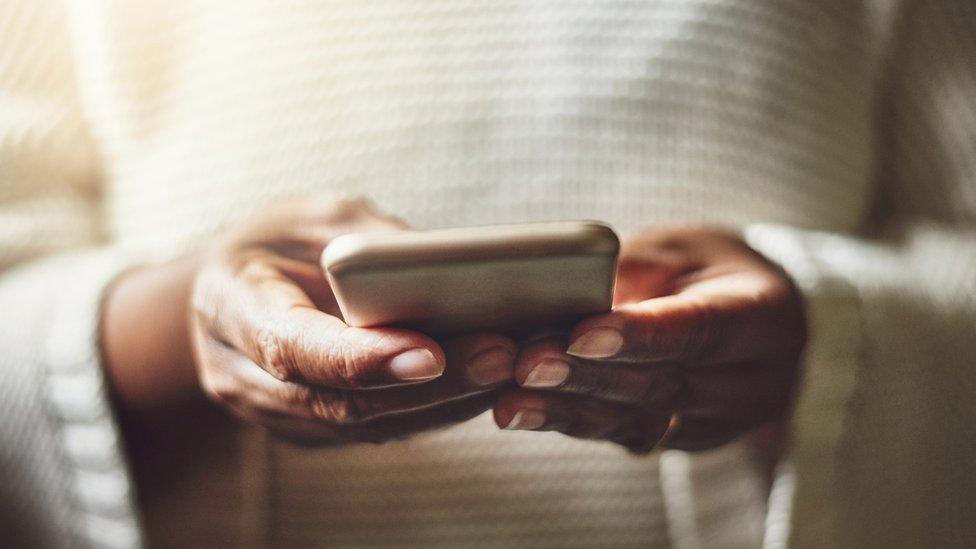
Rape and sexual assault complainants say police have stopped investigating their cases after they refused to reveal up to seven years of phone data.
Their accounts were compiled by privacy campaign Big Brother Watch, which is calling for more restricted searches of devices by forces in England and Wales.
One said the demand made her "feel like I'm being violated once again".
Police say searches are needed in some cases as trials collapsed when evidence was not disclosed to defence lawyers.
Consent forms asking victims of crime for permission to access information including emails, messages and photographs have been rolled out by police since April.
The Big Brother Watch report, Digital Strip Searches, calls for forces to revise the policy of "mass data downloads", arguing it is "unlawful" and a "gross invasion of privacy" to ask victims to hand in their phones.
It says the move most commonly affects victims of sexual offences.
The campaign is being backed by nine other civil liberties and victims' groups, including Amnesty International and Liberty, as well as a petition with more than 35,000 signatures.
The Information Commissioner's Office, the data protection watchdog, also said it had "serious concerns about the extraction of mobile phone data by the police and how that impacts people's privacy rights".
Different rules on phone searches apply in Scotland and Northern Ireland.
Police Scotland says it assesses whether it is "necessary and proportionate" in each case to seek access to someone's phone.
PSNI says officers seize phones only when it is necessary and in accordance with legislation., external
'The most personal moments'
The Big Brother Watch report collects testimony from several women whose cases were dropped after they refused consent for a blanket phone search, including one who reported a "sustained and sadistic attack" by an acquaintance.
She said: "Imagine your most private thoughts and feelings from counselling held in your phone being seen by anyone, let alone your rapist."
Another said police demanded seven years of phone data after she reported being drugged and raped by a group of strangers.
"My phone documents many of the most personal moments in my life and the thought of strangers combing through it, to try to use it against me, makes me feel like I'm being violated once again," she said.
A woman who reported historic abuse that took place before the mobile phone era had her case dropped when she refused consent to search her current phone, the report says.
In another case, the Crown Prosecution Service demanded to search the phone of a 12-year-old rape victim - even though the perpetrator had admitted the crime. The case was delayed for months as a result.
'Reasonable inquires only'
Assistant Commissioner Nick Ephgrave, the National Police Chiefs' Council lead for criminal justice, said smartphones and other devices were only examined when there was a "reasonable line of inquiry" and the Criminal Procedure and Investigations Act, external obliged them to disclose their findings to the defence.
Examination of digital devices is "most common in cases where victims and suspects know each other", he said.
He added police had introduced a new consent form to ensure permission was sought from alleged victims "properly and consistently".
"We recognise the concerns of some privacy and victims' groups and have been seeking advice from a wide range of groups to help us improve the process. We are strengthening training and investing in new technology, which will help to address concerns."
The new consent form for searching victims' phones was introduced after a series of rape and sexual assault cases collapsed when crucial evidence emerged at the last minute.
Liam Allan talks about what it is like being falsely accused of rape
Liam Allan, a 22-year-old student at the time, was one of the defendants affected, when messages exonerating him were discovered two years into his case.
The messages were among 57,000 downloaded from his accuser's phone, but the officer in charge suggested he had not searched them properly because he had too many phone downloads to analyse.
'Unlawful' searches
Big Brother Watch said the consent form used by police to search complainant's phones demands "excessive personal information regardless of its relevance" under threat of dropping the case.
It also warns people reporting rape and sexual assault they may be prosecuted themselves if evidence of other suspected criminal offences is found on their phone.
Because the consent is not freely given, specific and informed, the searches may be "unlawful", the campaign group says.
"No victim should have to make a choice between their privacy and justice," said Silkie Carlo, director of Big Brother Watch.
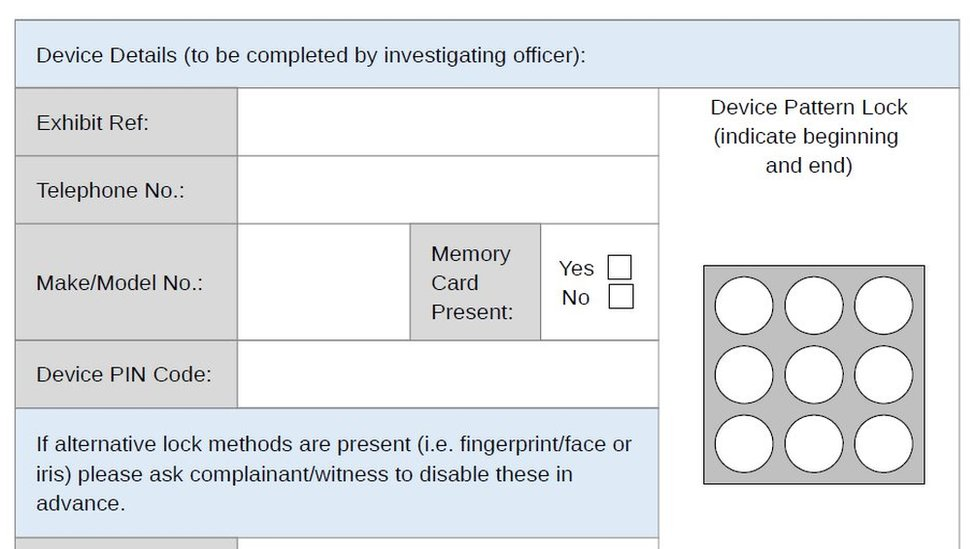
A screenshot of part of a consent form for 'digital device extraction', provided by the National Police Chiefs Council
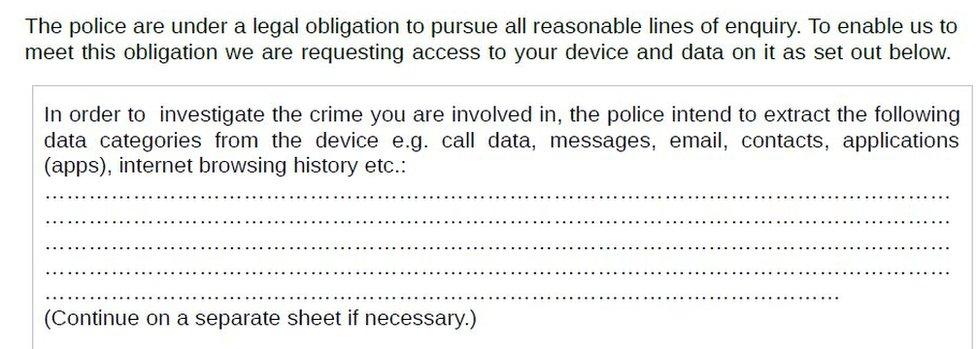
The report said the volume of phone data collected by police was causing delays of up to 18 months to investigations.
Complainants are also told they may lose access to their smartphones for long periods, with police reporting wait times for devices to be examined of up to nine months in complex cases.
The Information Commissioner's Office said police have also wrongly disclosed alleged victims' information. In one case, Kent Police were fined £80,000 for handing the entire contents of a woman's phone to the man she accused of domestic abuse.
- Published29 April 2019
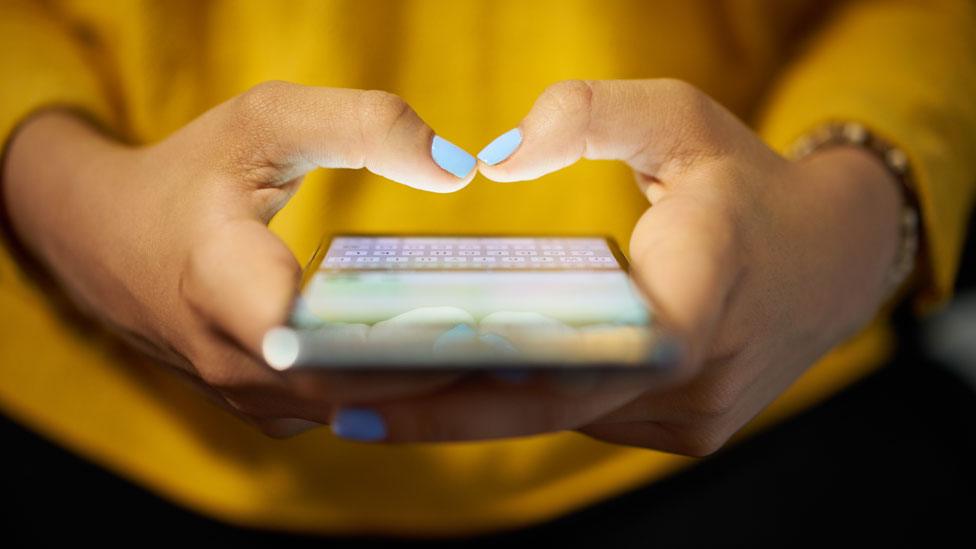
- Published5 May 2019
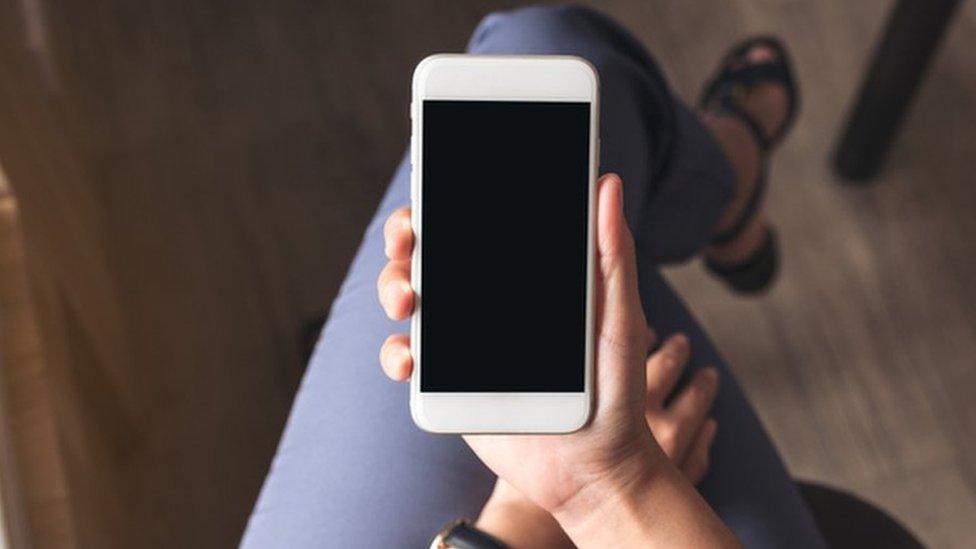
- Published27 May 2022
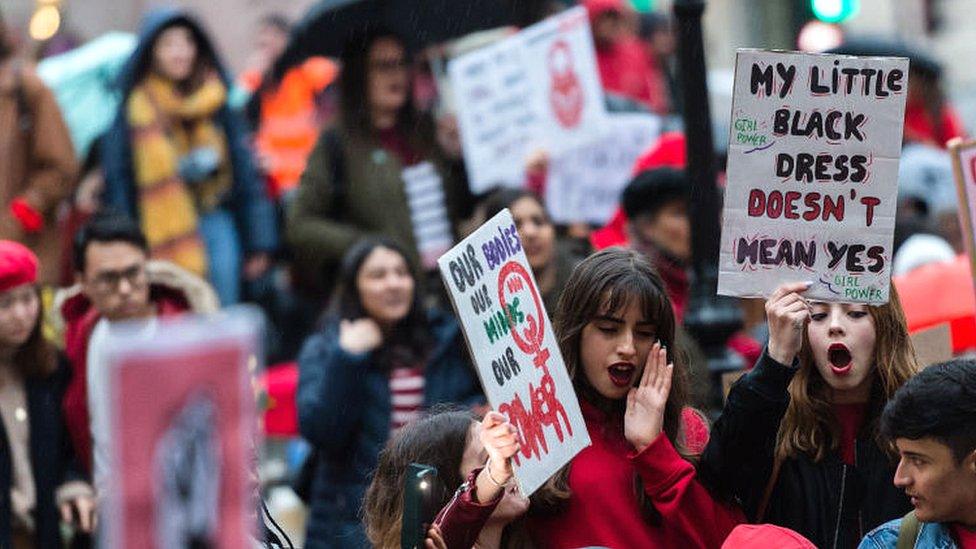
- Published30 January 2018
